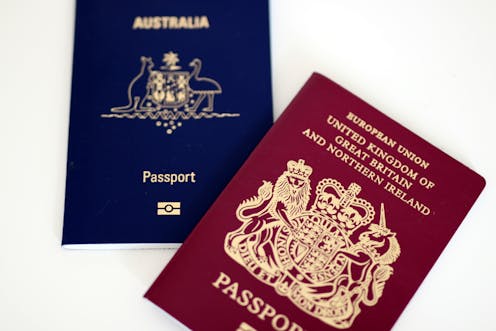Here's why it won't happen
- Written by Lorraine Finlay, Lecturer in Law, Murdoch University

The release of the report by the Joint Standing Committee on Electoral Matters (JSCEM) into section 44 of the Australian Constitution is the latest chapter in the long-running dual citizenship saga. The committee was asked to consider the impact of section 44 and options for reform.
While the report emphasises it is for the Australian people to decide on the appropriate qualifications of their elected representatives, its very title – Excluded: The impact of section 44 on Australian democracy – is a clue to the final view adopted by the majority of JSCEM.
Is a referendum the answer?
The key recommendation of JSCEM is that there should be a referendum proposing either that sections 44 and 45 of the Constitution are repealed, or that the words “until the Parliament otherwise provides” be inserted into those sections.
Read more: Explainer: what the High Court decision on Katy Gallagher is about and why it matters
The majority report states that the problems caused by section 44 are “wide-ranging” and “have significant and detrimental implications” for Australia’s democracy.
If either of the recommended referendum questions were passed, the effect would be to remove the disqualification criteria from the Constitution and instead leave it to the parliament to enact laws governing this area. This would supposedly allow for disqualification laws that better reflect modern community standards.
There are several practical problems with this, and that is without considering the underlying substantive question of whether section 44 should actually be changed.
The first problem is that it is highly unlikely a referendum would succeed, a point acknowledged by JSCEM. To succeed, a referendum question must be approved by not only a majority of voters across the country, but also a majority of voters in a majority of states. That means a referendum can be defeated with only 19.8% of Australians (being a majority of voters in each of the four smallest states) voting no.
It is highly unlikely that the Australian people would vote “yes” in a referendum that simply asks them to repeal section 44 – which is precisely what JSCEM has recommended. That would not only mean voting “yes” to allowing dual citizens to be elected (itself a controversial proposition), but would also allow individuals to be elected where they have been convicted of treason, are under sentence for a serious crime, or have a financial conflict of interest.
To be fair, JSCEM goes on to recommend that if the referendum passes, the parliament should enact laws to address matters of qualification and disqualification. Any such laws would most likely ensure that many of the circumstances described above would still result in disqualification.
But the difficulty with this is two-fold. The first is that – rightly or wrongly – many Australians blame our politicians for the problems with section 44. The idea they should put those same politicians in charge of deciding what disqualifications should apply to politicians in the future is unlikely to be met with great enthusiasm.
The second difficulty is that JSCEM is asking us to consider constitutional change in a vacuum. How can the Australian people judge whether or not to vote for repealing section 44 without knowing what, if anything, will replace it?
The committee suggests the removal or amendment of section 44 is a “necessary prerequisite” to a public debate on what constitutes appropriate parliamentary disqualifications.
I would suggest the opposite is true. A public debate on what constitutes appropriate parliamentary disqualifications is a necessary prerequisite to any referendum suggesting the removal or amendment of section 44.
In any event, the question of a referendum appears to be academic, with the government ruling out this option almost as soon as the JSCEM report was released.
The minority report
It is somewhat surprising that with recent polls suggesting a majority of Australians support the dual citizenship disqualification, only one committee member reflected this view and concluded constitutional change was not required.
In his minority report, Liberal Ben Morton stated “there has been no compelling argument” to remove the dual citizenship disqualification. He also confirmed he would campaign against any constitutional change attempting to remove this requirement.
This provides further insight into why a referendum will not occur. A government holding a one-seat majority simply cannot risk the distraction and destabilisation of a constitutional referendum that would divide its own members.
Other reform options?
Despite this, majority report did go on to recommend a number of practical strategies to “mitigate the impact of section 44” if constitutional change is not pursued.
These include the development of online self-assessment tools, additional education and support for candidates, formalising the parliamentary referral process, and working with foreign governments to streamline citizenship renunciations.
These are mostly sensible recommendations that will encourage greater compliance with the existing constitutional provisions. Given it is highly unlikely a referendum will happen, they are also the most important in practical terms.
The JSCEM report provides a number of practical recommendations to improve compliance with section 44. But it also confirms there is no easy fix.
Instead, it looks as though the dual citizenship saga still has a long way to go.
Authors: Lorraine Finlay, Lecturer in Law, Murdoch University



















